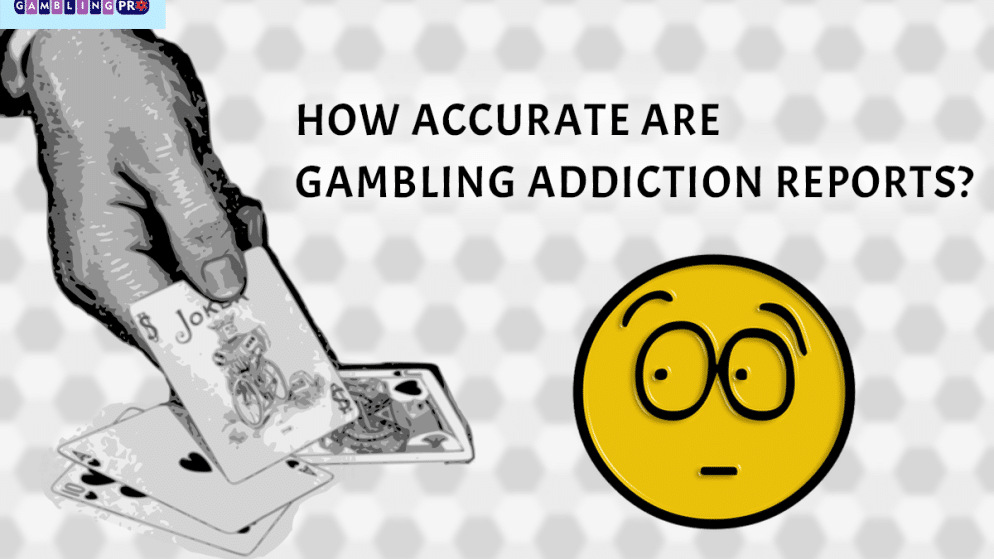
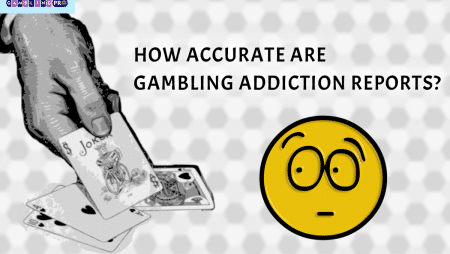 How Accurate Are Gambling Addiction Reports
How Accurate Are Gambling Addiction Reports Although the virtual gambling industry has achieved tremendous successes over the past few years, this growth has come with a big problem: the increasing rates of compulsive gambling!
This problem has now become one of the biggest issues that haunt researchers, policy makers. And even online casinos themselves. Because it is difficult to form a clear idea of its causes in light of the inaccurate studies and statistics.
Alternative sites to try luck
⚠ Disclaimer
We disclose that we have an affiliate partnership with this casino. Our earnings are generated when visitors access the casino's website, create an account, and make deposits. It's important to emphasize that this affiliation does not influence the impartiality of our casino reviews or ratings.
Last updated: 7 June 2025
🚀 Fast Payments 👩🎤 Top Slots 🔒 Secure
The reason problem gambling studies are inaccurate is that addictive gamblers don't like to participate in these studies. And don't feel comfortable when someone asks them about their gambling behaviors, they don't even accept to complete quick online questionnaires!
Therefore, it is very difficult to know what is the contribution of problem gamblers bets. To the amount of profits made by online casinos. How many addictive gamblers are in the UK, and what are the motives of problem gambler.
What Is the Percentage of Problem Gamblers in the UK?
GambleAware published a study in 2022 stated that the number of problem gamblers in the UK is approximately 2.7%, which equates to 1.81 million people.
This study included 5 million people (3.36% of Britons). However, this number is likely to be much higher considering that the survey covered a small group of gamblers and left out millions more. Furthermore, problem gamblers are known to dislike participating in gambling-related surveys. For them, gambling is a “secret pleasure” and they do not like to share its details with anyone or any entity to avoid blame or accountability.
In fact, no one will be happy when you ask him to tell you about a bad situation he went through, let alone talk about addiction?!
The evolution of problem gambling in the United Kingdom
Before the spread of virtual gambling, problem gambling was within safe limits and addicts were quite easy to spot and exclude. However, with the proliferation of online casinos and sports betting sites not on gamstop, gambling addiction has become more hidden and those infected with it cannot be detected.
With the spread of the Corona pandemic, things have taken a whole new turn as the number of virtual gamblers has multiplied. Thus, the number of problem gamblers has also doubled. The UKGC tried to take urgent steps to prevent the problem gambling. So, it banned credit cards at online casinos, imposed integration with GamStop on operators, placed limits on players’ deposits. And bets, banned gambling ads in transport, and prohibited sports betting providers from sponsoring Football clubs.
However, it is clear that all of these measures did not address the causes of the problem. As the proportions of “revealed” compulsive gambling are rising relentlessly.
The latest research published by GambleAware states that approximately 1.4 million people in the UK suffer from compulsive gambling. However, many experts question the accuracy of this figure and believe that it is a much underestimate.
Why Aren't the Results of Compulsive Gambling Surveys Accurate?
The number one reason why compulsive gamblers avoid participating in compulsive gambling surveys. Is the sensitivity of the problem and the stigma of gambling.
Many researchers believed that this problem could be solved by conducting online questionnaires. Without the need to use the gambler's personal data. However, the problem remains as most gamblers skip emails and survey pages.
In addition, surveys focus on proving gambling addiction based on the severity of problem gambling in the first place. In other words, they try to relate the gambling addiction to how bad it has made the gambler's life.
This means that these reports overlook players who are prone to gambling addiction. And gamblers who have not yet developed a full-blown gambling addiction.
Perhaps the most alarming figure in the GambleAware report is that 7% of Britons are negatively affected by problem gambling, which equates to 3.6 million people. Furthermore, there are 1.4 million Britons affected by problem gambling indirectly as a result of the addiction of a partner or friend.
Casinos Are the Only Party That Can Cure Problem Gambling!
It is very easy for all software developers to create algorithms capable of detecting behaviors of gambling. Addicts such as intense gaming over a long period of time, playing daily at unfamiliar times, large shifts in behaviour, or chasing losses. After that, the gambler's account can be temporarily or completely frozen. However, most online casinos do not implement such procedures.
On the other hand, if regulators impose these measures on online casinos, they may misuse them. For example, the highest winning players may be excluded and their credits frozen on the grounds that they are addicted to gambling!
According to a report prepared by Harvard University experts. Between 25% and 50% of casino revenue comes from mainly problem gamblers. Thus, it is not easy for any online casino to sacrifice this group. Which can be, at times, 70% of the casino's customer base.





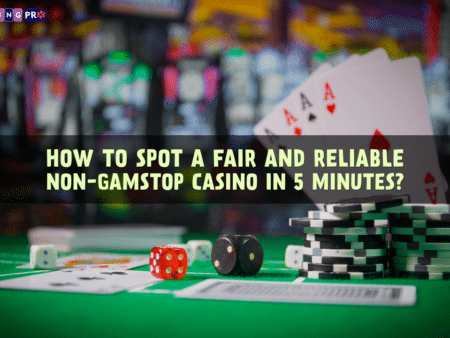












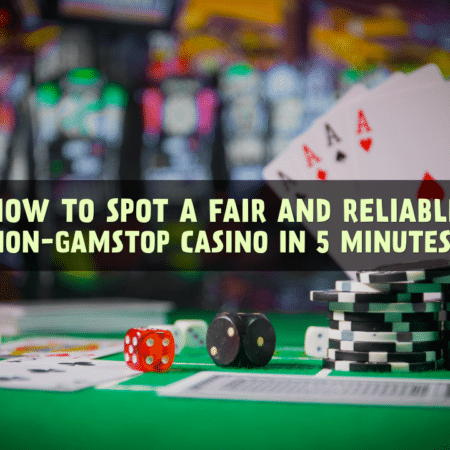

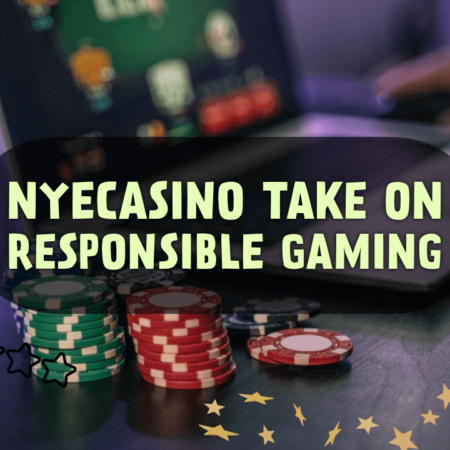












[…] research shows that young people are extra sensitive to addictions. The brains of young people are in full development, and addiction has arisen in this […]
[…] gaming should first and foremost be fun and not dictate your life. When fun becomes serious, gaming can become a problem. For example, if you spend much more money than you can afford, you should seek advice and help in […]
[…] addiction has emerged as a widespread concern, affecting individuals from all walks of life. The financial impact of gambling addiction can be severe, leading to significant debt, strained relationships, and overall financial […]